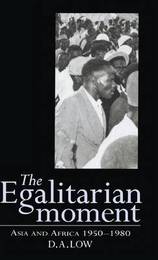
|
The Egalitarian Moment: Asia and Africa, 1950-1980
Hardback
Main Details
Description
General histories of the twentieth century will have much to say about the establishment, spread, maintenance and sudden collapse of Soviet Communism. This book outlines a major feature of twentieth-century world history that arguably affected more people than the rise and fall of Soviet Communism. It is the first to discuss as related developments the many attempts in Asia and Africa in the third quarter of the twentieth century to create egalitarian rural societies (landlord abolition in Egypt, India and Iran; ujamaa in Tanzania; land reform in Indonesia; collectivisation in China, Vietnam and Ethiopia), their failure, and the differentiated rural regimes which, despite landlord abolition, remain there to this day. The case studies include Egypt, India, the three East African countries, Papua New Guinea, Iran, Thailand, Malaysia, Indonesia, Ethiopia, China, and Vietnam. The book highlights a major and, hitherto, disaggregated aspect of twentieth-century world history.
Reviews"...this pithy little book bodes fair to become a classic among Third World studies." Foreign Affairs "The writing is generally clear and to the point...The discussions around the Wiles lectures in Belfast in 1994 obviously were lively and this is an appropriate memento of them." Peter Lyon, International History Review
|